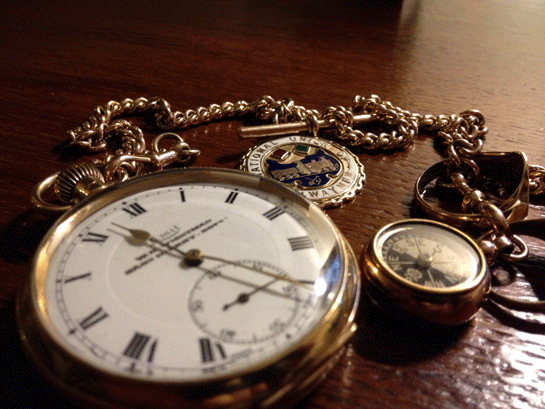Language is full of sayings and quotes about time. ‘Time is of the essence, ‘Time is money’, ‘Time marches on’ etc. This unending continuum drives many people’s lives at a relentless pace and without respite. For some, it rules their lives, but should it..?
The ability to accurately measure time has obsessed man across the ages. From ancient candle and water clocks to the most advanced atomic timepieces, we have (as with so much in life) advanced the accuracy and reliability of our measurements. It doesn’t seem long ago that my grandmother took me to a local jewellers to buy me my first wind up wristwatch (which still works beautifully by the way). It loses a few seconds a week, where our modern digital watches only lose seconds in a millennium. The question I have to ask is ‘does it really matter..?’ If you’re NASA launching a probe to Mars, then accurate timing is probably everything, but if you’re wandering the hills of Derbyshire, then a few minutes here and there are hardly an issue. Only if we are measuring distance by time does it really have any effect, and then a few seconds make little difference at 4kmh.
Recently a challenge based on the 400 year old longitude prize was launched to tackle one of six major problems faced by the world’s population. The original challenge was set to accurately calculate Longitude for Sea Navigation, and it was won by John Harrison with his ‘Sea Watch’, (later known at the Marine Chronometer). It was accurate to within a few seconds and revolutionised safe sea travel until the onset of satellite communications. In this environment, for safety’s sake, time is everything.
I heard recently at a speaking event that wearing a watch makes a strong statement. Apparently it makes you look bold and intelligent. I haven’t worn a wristwatch regularly since I was airlifted from McKinley in 1999, (I wonder what people think of me..?) The reason being that as long as the sun comes up in the morning and goes down at night, then all is well in my world. Am I strange..? Perhaps, but we shouldn’t let time go too far into governing our lives. Running the marathon to win is one thing, but running it for pure enjoyment is another. Speed records make great headlines, (such as the Huber Brothers ascents in Yosemite, or Uli Steck in the Himalayas), but there are untold numbers of ascents carried out every year for pleasure. Surely that it what life is all about..?
On my world travels I’ve seen people lose the plot over time, particularly in Asia, Africa and South America. Here, life is lived at a different pace and perhaps, more naturally. Many years ago, whilst on an Operation Raleigh expedition in Chile I learned about ‘Mañana Time’. Basically, Mañana is Spanish for ‘tomorrow’ or ‘morning’, so when you ask at what time the bus is coming, you will often get ‘Mañana’. This doesn’t really mean tomorrow, but it means ‘whenever’. Getting stressed about it won’t help. Its coming, when its coming and that’s that…
Stress is a huge issue in the modern world, and I fear that much of it is due to the constraints of time. Performance targets, business demands and competition bring unwanted strains to many people. Stress related absenteeism costs employers £1.24 billion with over 105 million days lost each year in the UK (source HSE). Now I’m not saying that we should ignore the clock, but work with it as a friend, rather than an enemy. I spoke at a conference for a large multinational oil and gas company earlier this year, and was asked on my thoughts on timekeeping. Some of the senior management seemed shocked when I said that people should go home on time. Working all the hours that God sends does not make people efficient, hardworking or dedicated. They need time away from work with their families and friends, and time for R & R and recovery.
I have been interviewed by a number of BBC Radio stations about my recent trip to Greenland. One of their first questions was about my experiences of peace and solitude whilst on expedition. Most of this is not based on the fact that I’m miles from anywhere, but that I’m free of time. Seasons and weather depict hours of light and staring at my watch won’t change that. The ability to camp where I like, when I like is a wonderful feeling and I feel more like an animal that a human being. They are governed by light and weather. The onset of electricity has changed much for the human race as we can now work around the clock, but our bodies were never designed for this. Our Circadian Rhythms are disturbed and studies show more and more, the health effects of long-term disruption.
The worst (so-called) fact that I hear involves business coaches who state ‘we can help you buy back your time..!’ Thankfully time is something we cannot purchase and I hope we never will be able to.
Accuracy of time is all about context. At times we need to be able to measure the microsecond, and at others a few minutes hardly matter. So don’t keep looking at the clock, panicking about being five minutes late, unless its life threatening. After all, I intend on being late for my own funeral…

This is a very good article. Thank you for a great information.